I'm not sure what Chloe has to apologize for. Lily painted herself as having an exciting legal career, and Chloe was just asking questions that made perfect sense asked of someone who claims to have that career. If anyone should apologize it's Lily, for spouting lies trying to impress everyone. Seems like this entire family has a lot to apologize for if they're putting Lily's triggers that she lied about over Chloe's natural curiosity and meaning no harm. I hope I never meet these people.
I Didn’t Mean to Start a Conflict at Dinner, but Now My Family Is Furious With Me

Family gatherings are often a time of joy, laughter, and connection. They offer a space to share stories, celebrate achievements, and build stronger relationships. However, they can also bring unexpected lessons about communication, boundaries, and the power of honesty. One of our readers, Chloe, shared their similar situation at a family dinner. Let's take a look!
This is Chloe’s letter:

Thank you for reaching out and sharing your story with us, Chloe. Your experience and the way you’ve come to terms with your brother’s girlfriend have truly inspired us. We’re certain it will also resonate with others who face similar situations.
Honesty is the best policy.
Honesty is an essential value in relationships, but it should be balanced with kindness. While being truthful helps with deeper connections, brutal honesty can sometimes cause unnecessary hurt. Though researches, it has been established that people feel safer opening up when they are not put on the spot.
In Chloe's story, Lily's situation highlights the importance of allowing people to share their truth at their own pace rather than forcing uncomfortable revelations. Sibling relationships are unique—they are built on shared history, but they also require personal space and respect. It is essential to regard the sibling boundaries.
Respecting the privacy of others.
Curiosity is natural, especially when meeting someone new, but knowing when to step back is crucial. Not everyone is ready to share personal details, and respecting privacy helps create trust. In this case, Lily is joined in a new environment, so she might not feel as comfortable as she usually does.
So, respecting individual boundaries leads to healthier and more fulfilling relationships. By being mindful of the questions we ask, we can create more empathetic conversations and stronger connections. While fostering a culture of respect, honesty, and support within our families, we can turn difficult moments into opportunities for growth and deeper understanding.
The power of apologizing.
Apologizing is a crucial step in repairing relationships, whether within your family or friendship. It is established that a genuine apology can rebuild trust and strengthen emotional bonds. Acknowledging our mistakes and showing empathy can turn misunderstandings into moments of growth.
After realizing their mistake, our reader reached out to Lily the next day and sincerely apologized. To their relief, Lily appreciated the apology and admitted she had felt pressured to impress the family. That night, she made the decision to return to school and complete her law degree.
The right way to apologize: How to do it?
Apologies, when sincere, help rebuild trust, mend relationships, and demonstrate emotional intelligence. But for some people, it is not easy to apologize. A genuine apology consists of three key elements:
- Acknowledging the wrong-doing
- Expressing genuine remorse
- Making amends
If you want to practice the right way to say sorry, it's good to avoid statements like "but". You should also own up to your apology and make amends for the future.
Building meaningful connections while being mindful of others' insecurities is no easy task. At times, you may feel lost in your own experiences, but remember that you’re not alone. Many others are navigating similar challenges. Reading about their journeys can offer valuable insight and support along the way.
People Share 10 Subtle Signs That Someone Might Be Struggling Emotionally
Comments
Related Reads
20 People Who Had an Unforgettable Experience at a Restaurant
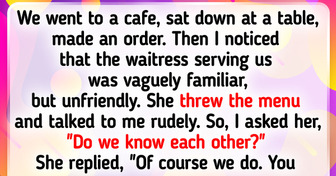
I Refused to Help Raise My Son’s Baby—His Reaction Devastated Me
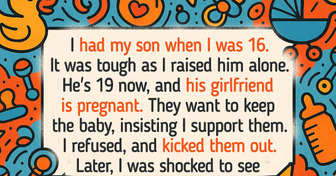
I Will Not Tolerate Humiliation Just Because I’m Not Rich

16 Touching Stories That Capture the Chaos and Beauty of Blended Families

I Refuse to Lose My Inheritance Because I Didn’t Attend Mom’s Funeral
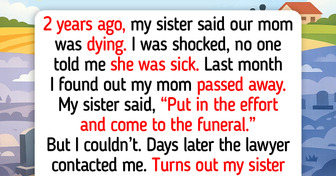
I Refused to Follow My Boss’s Dress Code—HR Had to Step In

15 Moments That Prove Kindness and Mercy Are Quietly Saving the World
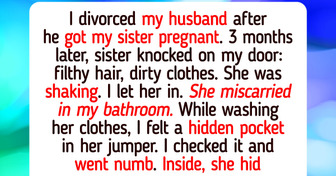
23 Times Quiet Kindness Won Over Human Ignorance in the Best Way

13 Double-Life Stories That Prove Even Those Closest to Us Have Secrets
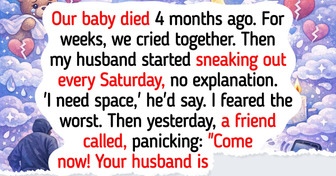
16 Tiny Acts From Strangers That Left Permanent Marks on People

12 Stories That Prove Kindness Is the Strongest Armor

15 Heart-Centered Moments of Human Kindness That Only Happen Once in a Blue Moon




